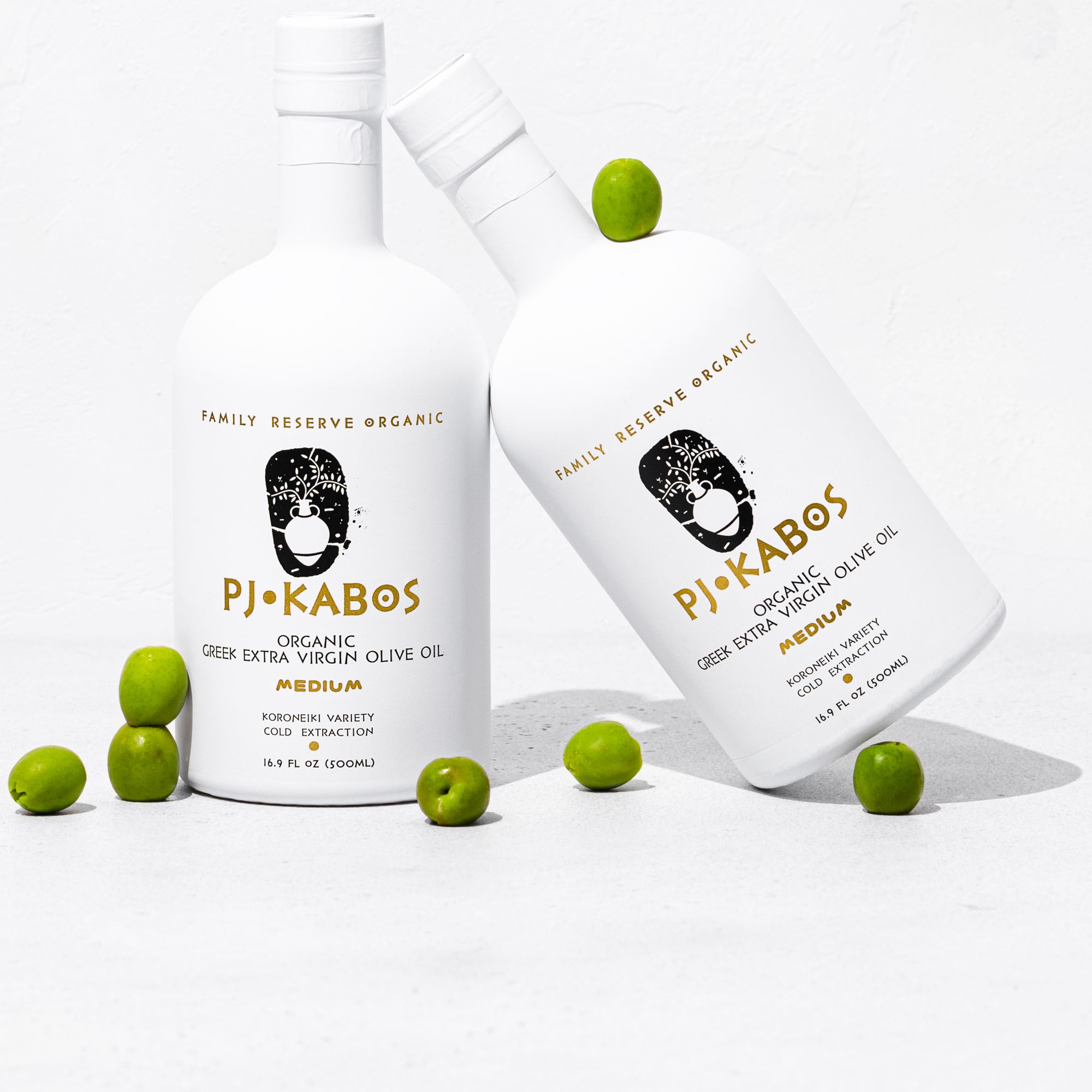Olive oil (specifically, extra virgin olive oil) is known for its powerful health benefits, which include everything from reducing inflammation to supporting balanced blood sugar to promoting cardiovascular health. It’s able to exert these benefits thanks in large part to its high percentage of monounsaturated fats (or MUFAs) and polyphenol compounds.
Monounsaturated fats, including oleic acid, are a subtype of unsaturated fats that are highly anti-inflammatory and promote balanced blood sugar, while polyphenols are bioactive compounds found in plant-based foods like olives and olive oil that have potent antioxidant and anti-inflammatory properties. The most predominant polyphenols in extra virgin olive oil are hydroxytyrosol, oleuropein, and oleocanthal.
Together, these healthy compounds make extra virgin olive oil one of the healthiest fats for anyone looking to prevent or manage type 2 diabetes.
What is Type 2 Diabetes?
Type 2 diabetes is a condition affecting the way your body turns food into energy. More specifically, it’s an impairment in the way your body uses sugar (or glucose) as fuel, which results in too much sugar remaining in the bloodstream.
There are two interrelated problems going on when someone has type 2 diabetes, according to the Mayo Clinic: Your pancreas does not produce enough insulin (the hormone that regulates the movement of sugar into your cells), and cells respond poorly to insulin and take in less sugar as a result (meaning, those cells become insulin resistant).
Eventually, if type 2 diabetes is left unmanaged, chronically elevated blood sugar levels can contribute to a range of serious problems such as heart disease, vision loss, slow wound healing, and nerve damage, according to the CDC.
Lack of physical activity, being overweight, having a high percentage of body fat, and consuming excessive sugar and refined carbohydrates may all contribute to the development of type 2 diabetes—and so, taking steps to mitigate these risk factors by adopting healthy diet and lifestyle habits is a smart way to prevent, manage, or even reverse type 2 diabetes.
How Can Olive Oil Help Control Diabetes?
While there isn’t a cure for diabetes, it can be prevented or managed by losing weight, eating a healthy, nutrient-dense diet, and being physically active—and, in some cases, these healthy changes are enough to put type 2 diabetes into remission. (Often, people also need medication, but they may be able to scale back on this over time, under the guidance of a doctor.)
Olive oil, especially extra virgin olive oil, is a great addition to an overall diabetes-friendly diet for a number of reasons:
- EVOO helps maintain stable blood sugar. Studies show that adding extra virgin olive oil to a high-glycemic index meal helps reduce the body’s glycemic response. (The glycemic index is used to measure how much a food or meal subsequently increases blood sugar levels, so this means that EVOO can buffer dangerous spikes in blood sugar when added to carb-containing meals.) Polyphenols and MUFAs are to thank: The olive oil polyphenol oleuropein is known to reduce blood sugar levels in animals and it may do the same for humans, and research suggests monounsaturated fats positively impact blood sugar levels and insulin secretion compared to saturated fats.
- Extra virgin olive oil helps with long-term blood sugar control, too. A 2017 meta-analysis found that people consuming the most olive oil had, on average, a 16% reduced risk of developing type 2 diabetes as well as significant reductions in fasting blood sugar and HbA1c levels (HbA1c is an indicator of your average blood glucose over two to three months). Additionally, a number of studies support the beneficial effects of a Mediterranean diet for reducing type 2 diabetes risk and improving overall metabolic health.
- Olive oil can also help you lose weight. In a recent study, women with excess body fat who added 1.5 tablespoons of extra virgin olive oil to their breakfast experienced significantly greater weight loss and reduction in blood pressure than women consuming an equal amount of soybean oil. This is great news, considering the fact that fat cells are known to secrete proinflammatory cytokines that can contribute to insulin resistance and damage pancreatic islets (regions of the pancreas that contain insulin-producing cells).
- Finally, compounds in extra virgin olive oil have been shown to reduce inflammation and oxidative stress—two factors that can contribute to diabetes and diabetes complications.
Adding Olive Oil to a Diabetes-Friendly Diet
In general, a diabetes-friendly diet is one that emphasizes the consumption of whole or minimally processed vegetables, fruits, whole grains, nuts, seeds, legumes, healthy fats, and high-quality proteins such as fish, and scaling back on foods high in sugar (especially added sugar), refined grains and carbohydrates, and saturated fats.
There are so many ways you can incorporate extra virgin olive oil into your diabetes-friendly diet. Here are a few of our favorites:
- Drizzle EVOO over vegetables, salads, or warm grain side dishes. Here’s a quick primer on the best olive oils for salads, and here’s how to make your own olive oil vinaigrette!
- Use olive oil in place of canola oil or vegetable oil for all forms of cooking, including frying, sauteing, and roasting.
- Use olive oil instead of butter and coconut oil—both of which are high in saturated fat— in recipes for baked goods such as cookies, pie crusts, cakes, and muffins. (Try this drool-worthy keto-friendly olive oil cake, which is ultra low carb!)
- Simply take a swig of olive oil before bed to keep blood sugar stable throughout the night, which may help promote a restful night’s sleep.
Product placement
PJ KABOS 'Family Reserve Organic - Medium'
High Phenolic and 2022 Gold-Award Winner.
Declared as 'One of the World's Best Olive Oils'.
Click here to shop.




